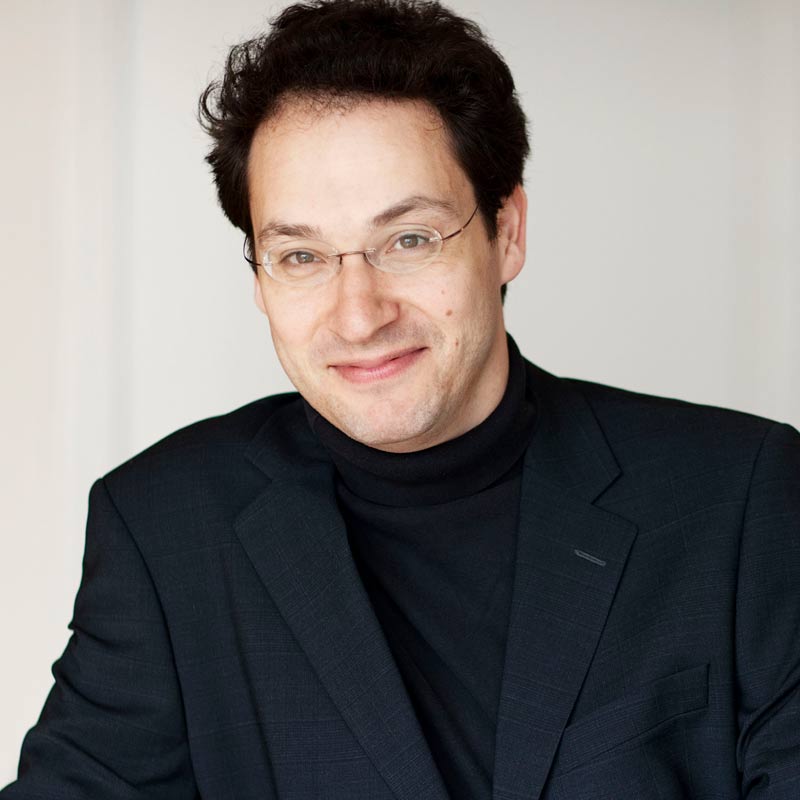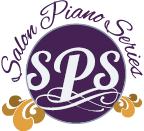Shai Wosner | Sunday, April 21, 2024 · 4:00 pm | Salon Piano Series | Concert in Madison, WI

Photo Credit: Marco Borggreve
Shai Wosner
Sunday, April 21, 2024 · 4:00 pm
Program included: Purcell, Chopin, Beethoven, Harbison, and Schumann
Another pianist we couldn't wait to welcome back for our 10th anniversary season. Wosner is committed to a broad range of innovative programming and recognized for exceptional insight. His concert program will include works by Purcell, Chopin, Beethoven, Harbison, and Schumann.
Program
Fantasia Upon One Note, Z.745, Henry Purcell arr. by Shai Wosner
Fantaisie in F minor, Op. 49, Frédéric Chopin
Prelude in C-sharp minor, Op. 45, Frédéric Chopin
Sonata No. 14 in C-Sharp minor, Op. 27 No. 2 “Quasi Una Fantasia”, Ludwig van Beethoven
Prelude in D-flat major Op. 28, No. 15, Frédéric Chopin
Passage, John Harbison
Fantasie in C major, Op. 17, Robert Schumann
Opus 3 Artists is the exclusive representative of Mr. Wosner.
Masterclass
Concert Review
The Salon Piano Series Tenth Anniversary Season reached its finale April 21 with Shai Wosner presenting an afternoon of fantasie, as imagined by Herny Purcell, Frederic Chopin, Beethoven, and Robert Schumann.
As a concerto soloist in North America, Wosner has appeared with the major orchestras across the United States. He studied with Emanuel Ax at The Juilliard School, where Wosner is now on the piano faculty. Wosner also serves as 2020-2024 Artist-in-Residence with the Peoples’ Symphony Concerts in New York.
Wosner explained that “fantaisie” is a musical composition with roots in improvisation. It seldom follows the rules of any strict musical form. The term first referred to the imaginative musical “idea” rather than to a particular compositional genre.
Wosner performed Ludwig van Beethoven 14th (the famous “Moonlight”) Piano Sonata, whose score is headed with “Sonata quasi una fantasia,” Chopin’s Fantaisie in F minor, Op. 49, and Schumann's epic Fantasie in C, Op. 17, dedicated to Franz Liszt.
One highlight of the afternoon was an appearance by composer John Harbison, who explained his contribution to a recent Wosner commission, “Variations on a theme by FDR.” In his 1938 address to the Daughters of the American Revolution, FDR said, “Remember always, that all of us… are descended from immigrants and revolutionists.” Harbison based his 2019 contribution “Passage” on the life and career of the Russian émigré composer Vernon Duke. Born Vladimir Dukelsky in Belarus, he was a classically trained composer who eventually worked in Hollywood and wrote several popular songs, including Autumn in New York, I Can’t Get Started, and April in Paris. “I incorporated Vernon Duke’s trajectory from classical composition to writing popular
music,” Harbison said. “The plot line of the piece is immigration—the value and significance on a whole generation of American composers.”
Being treated to a Sunday afternoon of major Classical- and Romantic-era composers, the audience demanded an encore. Wosner graciously complied with a performance of Schubert’s light, dance-like Hungarian Melody.
A book is being prepared to celebrate the ten years of the Salon Piano Series and is expected to be released this summer.
Paul Baker
